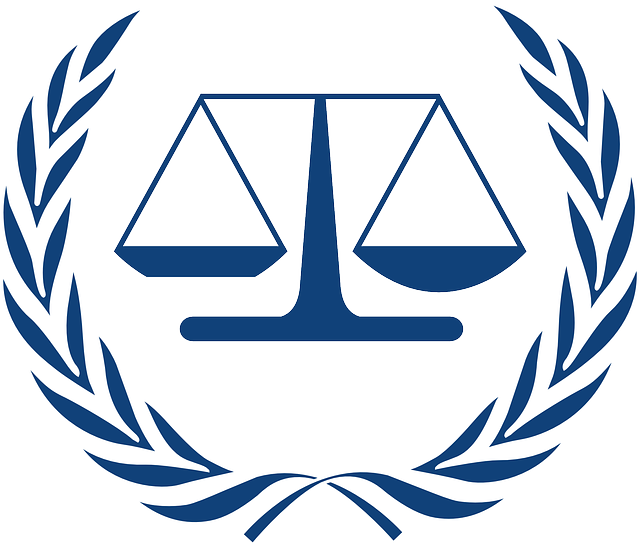For those pursuing a personal injury claim without legal aid, understanding different litigation types is crucial. Tort law covers these cases, with procedures varying by fault—individual or business. While negotiations and settlements are common, complex cases may need jury trials. Self-representation is possible for less intricate claims, offering control and fee savings. However, it's challenging, requiring strategic planning, legal knowledge, evidence management, and access to resources. Even complex cases can be successfully navigated by those with adequate preparation, ensuring the best outcome for a personal injury claim without a lawyer.
In the complex legal landscape, understanding different litigation types is paramount. This article delves into various facets of personal injury claims, offering a comprehensive overview for those considering a self-representation route. We explore the pros and cons of navigating a personal injury claim without legal aid, providing insights to help you make an informed decision. Learn how to recognize your rights and options in this critical process, especially when foregoing a lawyer in personal injury cases.
- Understanding Different Types of Litigation
- Personal Injury Claims: A Comprehensive Overview
- Representing Yourself: Navigating a Personal Injury Claim Without Legal Aid
- The Pros and Cons of Forgoing a Lawyer in Personal Injury Cases
Understanding Different Types of Litigation

Understanding different types of litigation is crucial for anyone navigating the legal system, especially when considering a personal injury claim without a lawyer. There are various forms of legal disputes that can arise, each with its own unique characteristics and procedures. For instance, tort law encompasses personal injury cases, where individuals seek compensation for harm caused by another party’s negligence or intentional acts. These claims can range from car accidents to medical malpractice, and understanding the specific type of litigation is essential for building a strong case.
The process differs greatly depending on whether a respective business is being held accountable. In some cases, negotiations and out-of-court settlements are feasible, providing a more efficient and cost-effective resolution. However, when the dispute escalates or involves complex issues, jury trials may be necessary. Knowing which route to take can significantly impact the outcome for his clients, making it vital to familiarize oneself with different litigation types and their potential outcomes.
Personal Injury Claims: A Comprehensive Overview

Personal Injury claims are a significant segment of civil litigation, focusing on compensating individuals for physical harm or property damage caused by another party’s negligence or intentional acts. These cases can arise from various scenarios, including car accidents, slips and falls, medical malpractice, product liability, and workplace injuries. While many personal injury claims are handled through legal representation, there is an increasing trend of individuals opting for self-representation, particularly in pursuing a Personal Injury Claim Without a Lawyer.
This shift is partly attributed to the growing complexity of legal processes and the rising costs associated with traditional legal services. Self-represented plaintiffs can navigate all stages of the investigative and enforcement process by utilizing readily available resources, such as legal aid organizations and online platforms that offer guidance tailored to their specific cases. This trend has led to an unprecedented track record of successful personal injury claims outside the traditional lawyer-client relationship, impacting not just individual financial outcomes but also the broader philanthropic and political communities by empowering citizens to take charge of their legal rights.
Representing Yourself: Navigating a Personal Injury Claim Without Legal Aid

Many individuals consider hiring a lawyer when they face a personal injury claim, often due to the perceived complexity and severity of such cases. However, representing yourself in court is not only possible but can be a viable option for those looking to manage their case independently. This approach, known as self-representation, offers several advantages, especially for less complex claims where damages are relatively low. By choosing to navigate a personal injury claim without legal aid, you gain control over the process and potentially save significant legal fees.
While it may seem daunting, successful self-representation is within reach for many. It involves thoroughly understanding the law, gathering and presenting evidence effectively, and knowing how to challenge or counter an opposing challenging defense. Many resources are available across the country to assist pro se litigants, from online legal guides to local support groups. This method has even proven effective in winning verdicts in cases involving white-collar and economic crimes, demonstrating that self-representation can lead to positive outcomes when approached strategically.
The Pros and Cons of Forgoing a Lawyer in Personal Injury Cases

Forgoing a lawyer for a personal injury claim can have both advantages and drawbacks. One benefit is the potential cost savings, as legal fees can be significant. Representing oneself allows the claimant to keep all the proceeds from any settlement or judgment, providing a greater financial reward. Additionally, some people prefer to handle their case independently, believing they can navigate the system better than a lawyer. This approach empowers them to actively participate in all stages of the investigative and enforcement process, fostering a deeper understanding of their rights and options.
However, there are substantial risks associated with proceeding without legal representation. Personal injury cases, especially involving complex issues or high-stakes jury trials, demand specialized knowledge and experience. Corporate defendants often have teams of lawyers to protect their interests, leaving individual plaintiffs at a significant disadvantage. Without legal guidance, it can be challenging to gather and present compelling evidence, interpret legal jargon, and make informed decisions. Missteps in the process could lead to missed deadlines, inadequate compensation, or even failure to win the case, resulting in financial loss and emotional distress for the claimant.
When considering a personal injury claim without legal aid, understanding different litigation types is crucial. While it’s tempting to navigate this process alone, especially in today’s digital era, forging ahead without representation can be a complex and potentially perilous path. The pros and cons of foregoing a lawyer in personal injury cases weigh heavily on the individual’s specific circumstances. Remember that, in some instances, a personal injury claim without a lawyer may seem like a cost-effective choice, but it could ultimately result in an inadequate settlement or even a lost case. Therefore, while exploring self-representation is an option, carefully evaluating your options and considering the potential outcomes is essential before diving into a personal injury claim without legal counsel.






